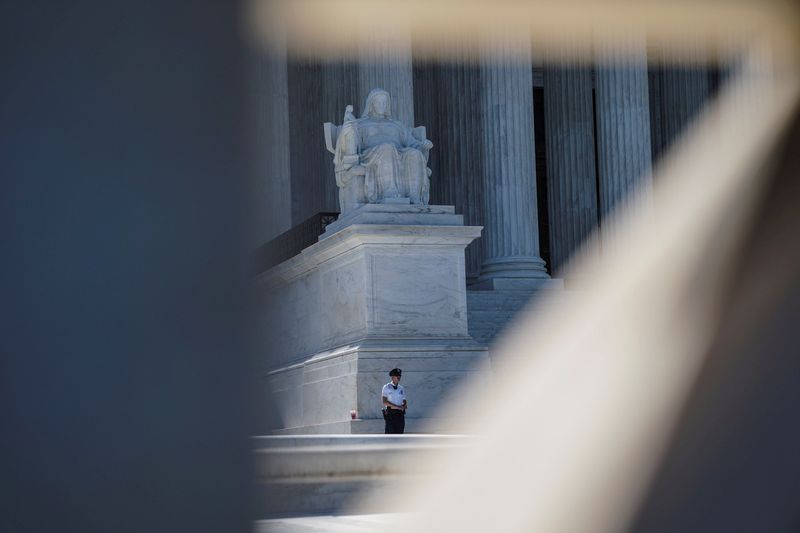By Daniel Wiessner
(Reuters) - The U.S. Supreme Court on Tuesday turned away Alaska's bid to revive a Republican-backed policy to make it easier for state workers to opt out of paying union dues in the latest case aimed at limiting the influence of unions representing public-sector employees.
The justices declined to hear the state's appeal of a lower court's ruling that found that a union's collecting of dues from public employees who it represents without receiving their explicit written consent did not violate their free speech rights under the U.S. Constitution's First Amendment.
Republican Alaska Governor Mike Dunleavy in 2019 issued an administrative order barring unions representing government employees from collecting dues from workers unless they filled out forms explicitly authorizing them. But lower courts later invalidated that policy in a lawsuit brought by Alaska against the state's largest public-sector union.
The Supreme Court, with its 6-3 conservative majority, has leaned toward curbing the power of labor unions in rulings in recent years.
The Alaska case marked the latest attempt by Republicans and conservative groups to extend the Supreme Court's 2018 ruling in a case called Janus v. AFSCME. In that ruling, the justices decided that government workers who do not join the unions that represent them in contract negotiations cannot be required to pay fees to cover the cost of collective bargaining.
The Janus ruling was considered a major victory for opponents of public-sector unions. While some experts had predicted that the decision would have a devastating impact on union finances, that has not materialized.
Alaska in 2019 sued the Alaska State Employees Association (ASEA), which represents about 8,000 of the 15,000 state employees in Alaska, to invalidate its procedures for collecting dues. ASEA is an affiliate of the Association of Federal, State, County and Municipal Employees (AFSCME), the largest trade union for U.S. public-sector workers. It represents administrative, technical and professional workers at certain state agencies.
ASEA members are allowed to revoke their membership only during a 10-day period each year. ASEA has said nothing in the Janus ruling invalidated that policy. The state has argued that limiting the time when workers can opt out of union membership violates their First Amendment rights.
In the Janus case, the U.S. Supreme Court found that so-called "agency fees" charged to public employees who do not join unions violate their First Amendment rights by forcing them to subsidize political speech of unions. Agency fees are less than union dues and covered only collective bargaining and administrative costs.
In its lawsuit, Alaska had argued that in light of the Janus decision, public workers should be required to notify the state if they want to have union dues deducted from their paychecks rather than using a union process to opt out of paying dues.

A state judge dismissed the case and the Alaska Supreme Court in 2023 affirmed that ruling.
Alaska was backed by 11 other Republican-led states, various conservative groups and Mark Janus, the plaintiff in the 2018 Supreme Court decision.